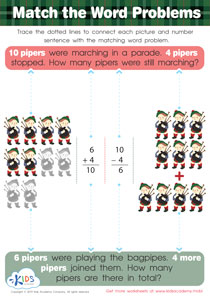Addition skills Normal Addition Worksheets for Ages 8-9
5 filtered results
-
From - To
Enhance your child's math abilities with our engaging Normal Addition Worksheets designed for ages 8-9. These worksheets provide a variety of exercises, from basic addition problems to multi-digit calculations, helping young learners solidify their understanding of addition concepts. Each worksheet includes fun illustrations and challenging activities that make learning enjoyable and interactive. Ideal for both classroom and home use, these addition skills worksheets prioritize skill development and confidence-building in math. Foster a love for learning by allowing your child to practice at their own pace, reinforcing foundational math skills essential for future success. Explore our resources today and watch your child excel!
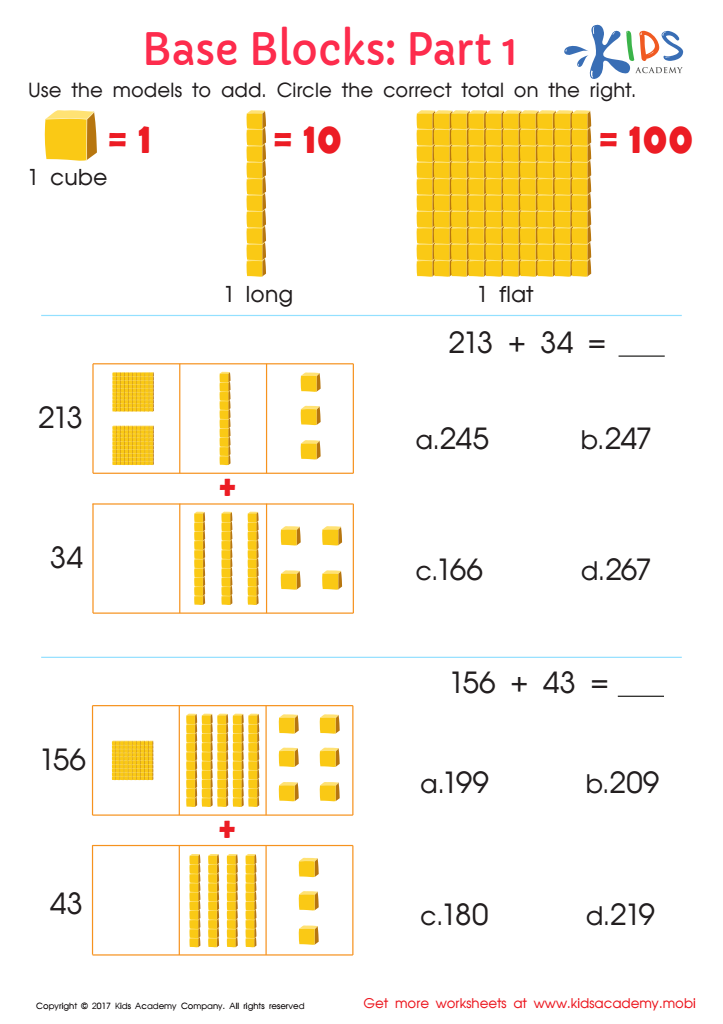

Base Ten Blocks Worksheet: Part 1
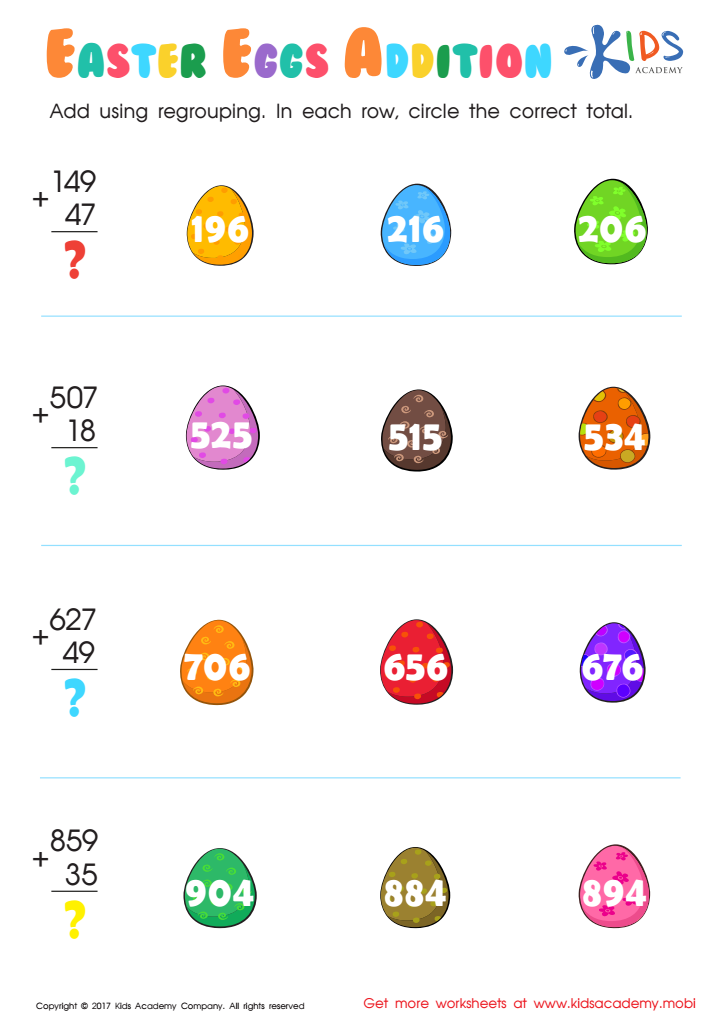

Addition with Regrouping Worksheet
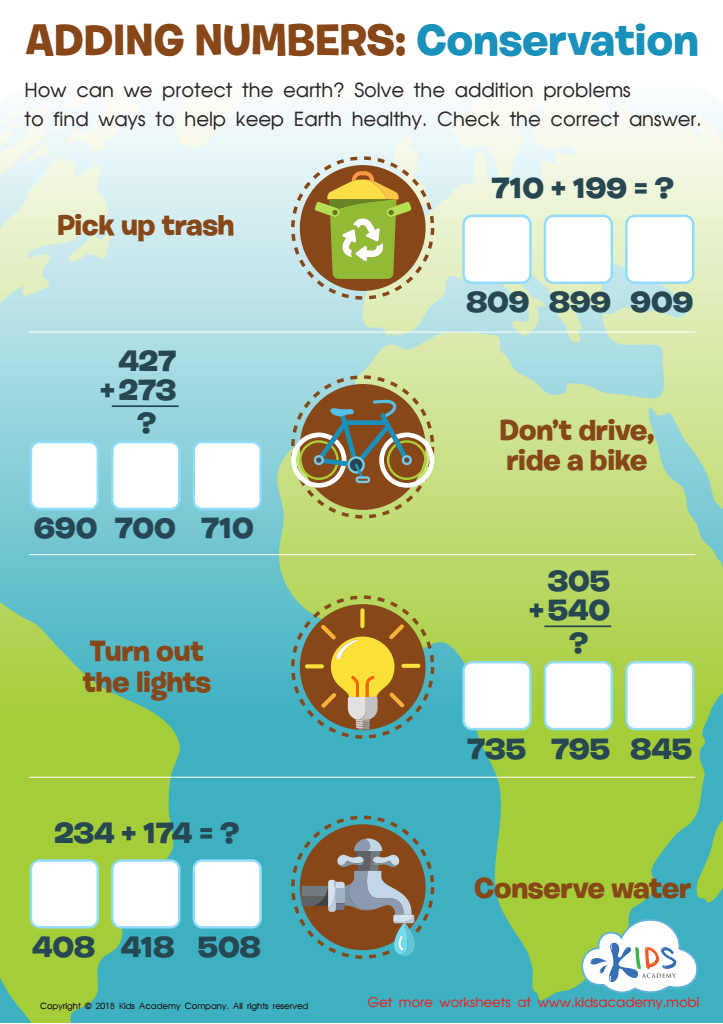

Adding Numbers: Conservation Worksheet


Adding Flower Petals Worksheet
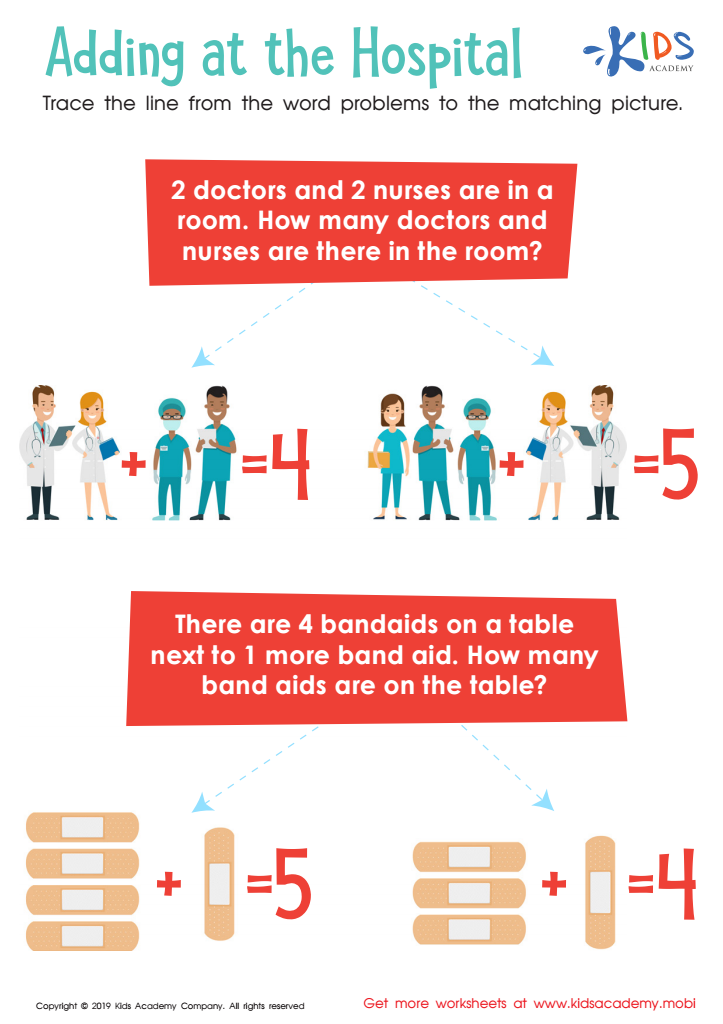

Adding at the Hospital Worksheet
Addition skills, especially normal addition for children aged 8-9, serve as foundational elements for their overall mathematical development. At this age, students are transitioning from basic arithmetic to more complex problem-solving situations. Mastery of addition enhances cognitive skills such as critical thinking and analytical reasoning. Parents and teachers should care about these skills because they impact students' confidence in math, influencing their attitudes towards the subject in future years.
Strong addition skills allow for efficient learning of more advanced topics, such as multiplication, division, and even basic algebra. When children can easily perform addition, they are more likely to engage in math fluency activities, leading to better performance in exams and daily mathematical tasks. Additionally, these skills help reinforce numbers and operations, teaching students how to handle real-world situations, like budgeting or measuring.
Moreover, a solid grasp of addition can bridge connections to other subjects, promoting a well-rounded education. Encouraging students to master addition can also foster skills such as perseverance and resilience—qualifying traits for success in academics and beyond. Ultimately, prioritizing these skills lays the groundwork for lifelong mathematical understanding and appreciation.
 Assign to My Students
Assign to My Students









